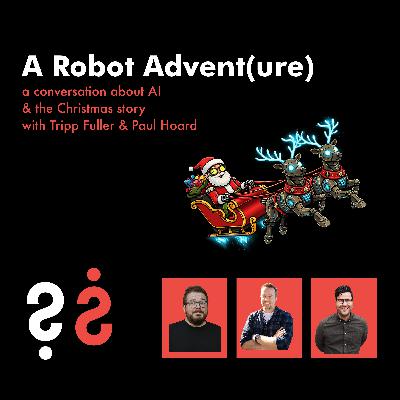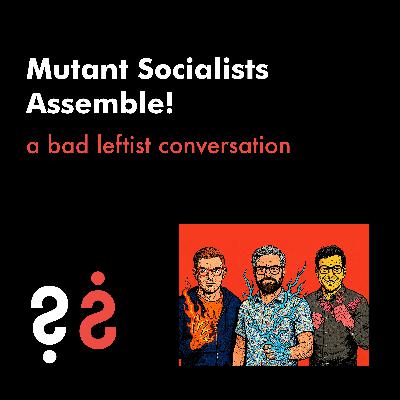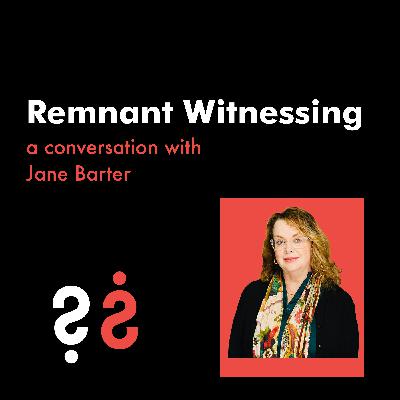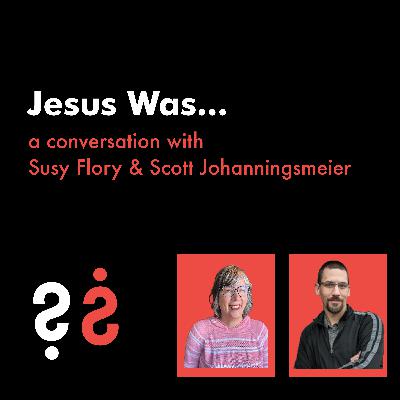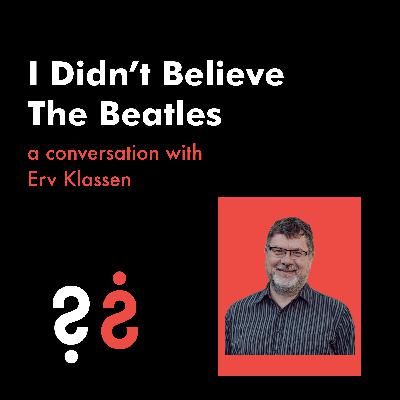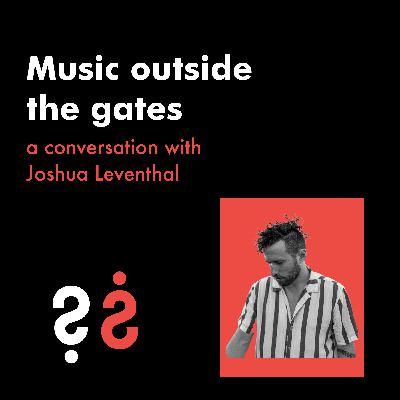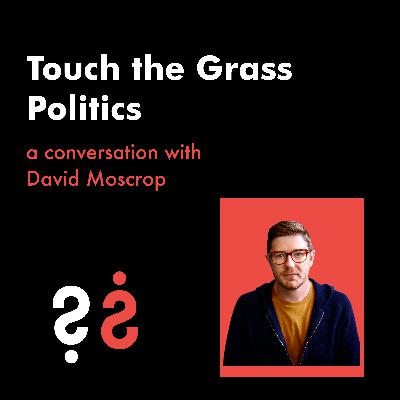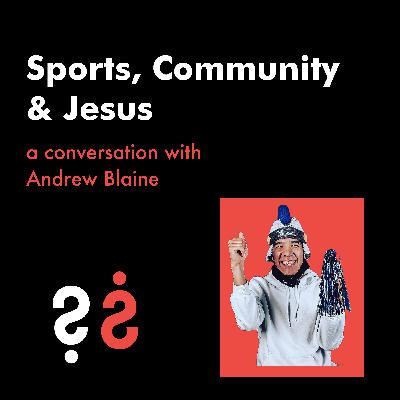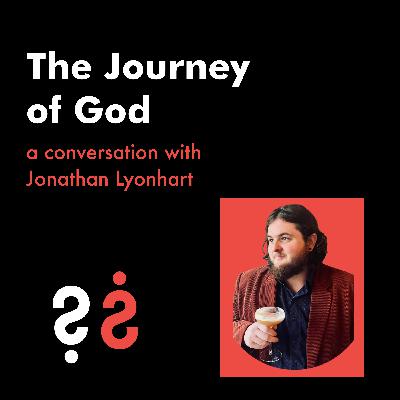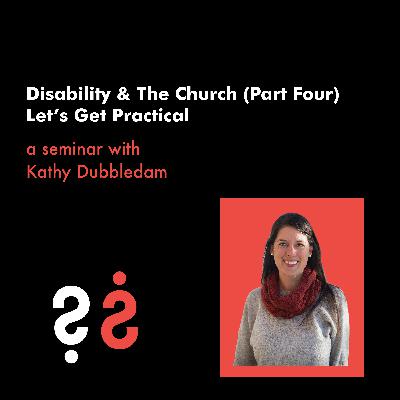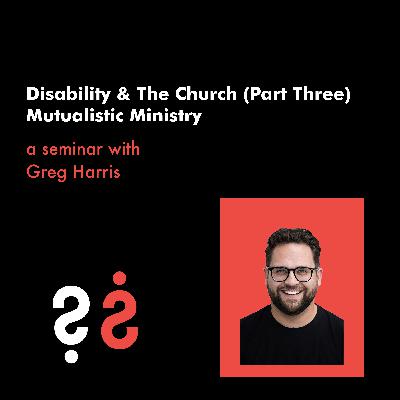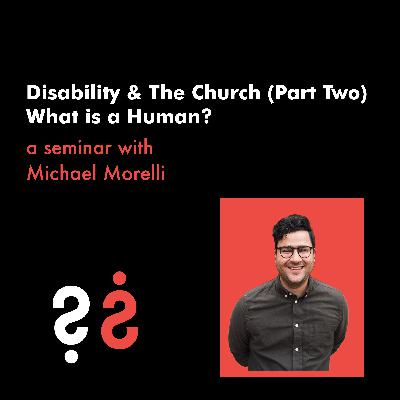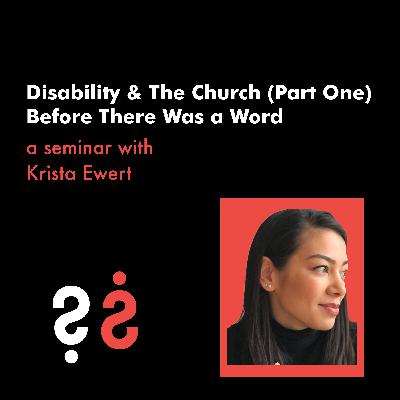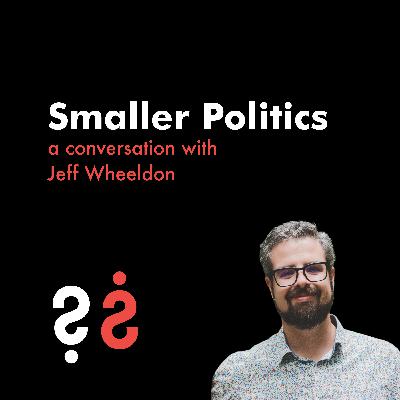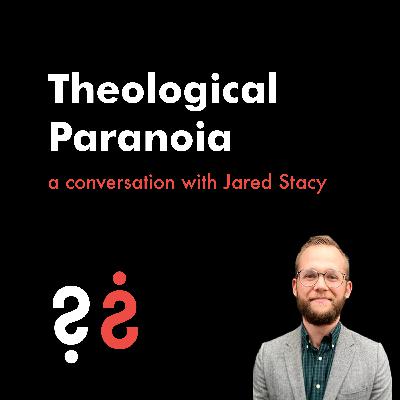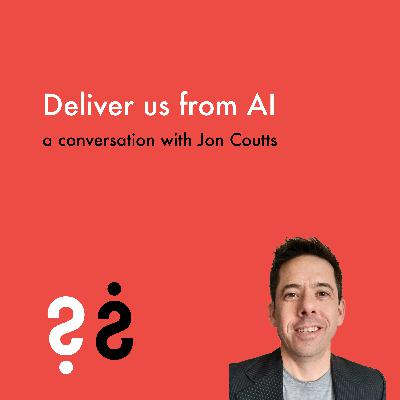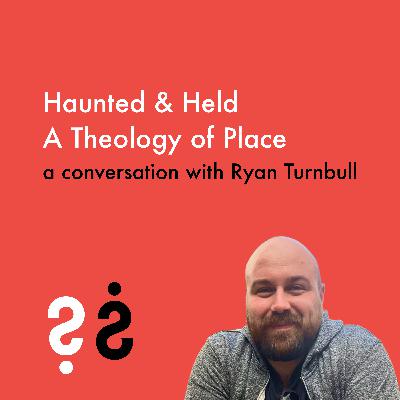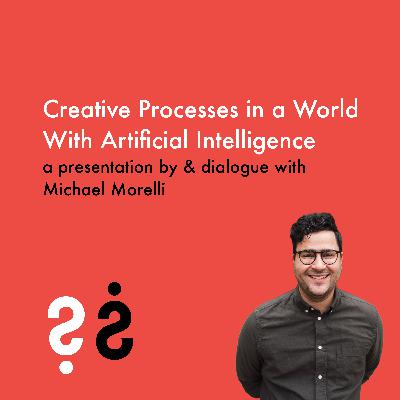Discover Personalist Manifesto(s)
Personalist Manifesto(s)

Personalist Manifesto(s)
Author: Personalist Manifesto(s)
Subscribed: 2Played: 8Subscribe
Share
© Personalist Manifesto(s)
Description
Personalist Manifesto(s) hosts conversations inspired by the personalist thought and action of Jacques Ellul and Bernard Charbonneau. If you've never heard about personalism, Ellul, or Charbonneau, don't worry! This is the place to hear about all three and more. At the end of the day, it's all about revolution: a contemplative revolution that (re)humanizes rather than de-humanizes people. So what are you waiting for? Join the contemplative revolution!
41 Episodes
Reverse
In this final episode of 2025, I’m joined by Tripp Fuller from Homebrewed Christianity and Paul Hoard from the Seattle School of Theology and Psychology. We talk about the Christmas story, and how, in so many ways, it moves in the opposite direction of the stories being told by artificial intelligence prophets, power brokers, and profiteers today. So, wherever you are at in this advent season, I hope this conversation brings you a bit of hope as it reminds you of what it is to be human, what love truly is, and how, even when it seems so dark out there, the light of the world really has overcome that darkness.Have a Merry Christmas and Happy New Year. I’ll see you in 2026. BiosTripp Fuller is a podcaster, theologian, minister and competitive home brewer. Currently, he is visiting Professor of Theology at Luther Seminary. He received his PhD in Philosophy, Religion, and Theology at Claremont Graduate University. For over 12 years Tripp has been doing the Homebrewed Christianity podcast where he interviews different scholars about their work so you can get nerdy in traffic, on the treadmill, or doing the dishes. Last year it had over 3 million downloads. It also inspired a book series with Fortress Press called the Homebrewed Christianity Guides to topics like God, Jesus, Spirit, Church History and so on. Paul Hoard, PhD, LMHC, is a psychoanalytic psychotherapist and associate professor of counseling psychology at The Seattle School of Theology & Psychology. His work sits at the intersection of Lacanian theory, theology, and culture, examining how desire, disgust, trauma, sexuality, and play shape our lives and imaginations. He maintains a clinical practice, provides supervision for therapists integrating psychoanalysis and theology, and is the co-author (with his sister Billie Hoard) of Eucontamination: Disgust Theology and the Christian Life, a book that reimagines the theological logic of disgust as a site of transformation rather than exclusion.Tripp's LinksWebsite: https://www.homebrewedchristianty.com/Substack: https://processthis.substack.com/Bluesky: @trippfuller.bsky.socialPodcast: https://podcasts.apple.com/ca/podcast/homebrewed-christianity/id276269040Paul's LinksSubstack: https://paulhoard.substack.com/Paul's Book: https://wipfandstock.com/9798385213726/eucontamination/
In this episode, I speak with two returning guests, political columnist and commentator David Moscrop and politician Jeff Wheeldon.As you’ll discover, the origin story for what you’ll about to hear kicked off when David used the terms 'mutant socialist' and 'bad leftist' in our previous conversation. There was something about those terms, and the thoughts surrounding them, that helped me feel very seen and understood. And it also reminded me a lot of the conversation I had with Jeff on this show.The three of us all lean to the left in our politics, but that doesn’t mean we feel totally at home within what constitutes ‘The Left’ today. And for me personally, this reality actually goes a fairly long way in accounting for why I started Personalist Manifesto(s): to explore what it could look like to venture into uncharted political territory in our fraught right, left, and centre, landscape today.And so, I thought, “Well… Maybe I—maybe we—are mutant socialists?” And then, the idea for this assembly was born: a mutant socialist assembly, a bad leftist conversation, where we talk politics in ways that do and don’t fit with many of the options on offer today, and we see if that resonates with ourselves and anyone listening.We cover a lot of ground here: 90s pop culture, technology, institutions, localized politics, and lots in between. And we hope, in covering this ground, you feel encouraged to practice touch the grass, love your neighbour, politics wherever you happen to be. And so with that, here’s my conversation with David and Jeff—the mutant socialist crew.BiosDavid Moscrop is a politics columnist, commentator, and author of Too Dumb for Democracy? Why We Make Bad Political Decisions And How We Can Make Better Ones. His work has appeared in outlets including Globe and Mail, the Washington Post, the Walrus, Time Magazine, the Guardian, and Jacobin. He holds a PhD in political science from the University of British Columbia.Jeff Wheeldon blogs on municipal politics, and still occasionally publishes essays on politics, religion, and sociology.LinksDavid's Book: Too Dumb for Democracy? Why We Make Bad Political Decisions and How We Can Make Better Ones: https://gooselane.com/products/too-dumb-for-democracyDavid's Substack: www.davidmoscrop.comDavid's Bluesky: https://bsky.app/profile/davidmoscrop.comDavid's Twitter: @David_MoscropJeff's blog: https://jeffwheeldon.ca/blog/Jeff's publications: https://sociologyandchristianity.org/index.php/jsc/article/view/281
When genocides and political atrocities take place, it has become common for people to assemble in public, bear witness to what has happened, and address those events to reach a sense of… what, exactly?Awareness? Truth? Understanding? Closure? Reconciliation? Healing? Reparation? Change?And if these—or something else—are the aims of these assemblies, do they actually achieve these goals? Enter Jane Barter, and her new book Theopolitics and the Era of the Witness, to explore these and so many other important questions related to a phenomenon that has become so typical of our time that it is rare to encounter people thinking as deeply, and speaking as meaningfully to these questions as Jane does.BioJane Barter (she/her) is Professor of Religion and Culture at the University of Winnipeg. She has published three monographs, including her a recent book on witnessing to political atrocity, Theopolitics and the Era of the Witness (Routledge. 2025). She recently co-edited (with Doris Kieser, St. Joseph’s College, University of Alberta) a special volume of the Journal of Moral Theology on the papal visit and apology to survivors of Residential Schools in Canada. She is also general editor of the forthcoming (2026) multi-volume T & T Clark Encyclopedia of Christian Theology (Bloomsbury Press).LinksJane's new book: https://www.routledge.com/Theopolitics-and-the-Era-of-the-Witness/Barter/p/book/9781032615035
It’s amazing and terrifying how one small sentence posted online at a particular moment in a particular context can spread like wildfire, and result in a book. In this case, it was the sentence Jesus was non-violent, posted by Susy Flory on Facebook during the Covid-19 pandemic and the January 6 Insurrection that started the fire and led to a book. In this conversation, I speak with Susy and Scott Johanningsmeir, editors of the recent published book Jesus Was: Not What We Expected But Better Than We Imagined where we not only get the origin story for the book, but we also reflect on how some of the most important things in life, including the Christian life, can be hidden in plain sight.So whether you identify as a Christian or not, I encourage you to listen to this conversation. It might re-introduce you, or introduce you for the first time, to the revolutionary, and kind, Jesus. Who not only was, but is, and is to come.Bios and LinksSusy Flory is a New York Times best-selling author or coauthor of eighteen books, directs West Coast Christian Writers, and is the founder of Everything Memoir with Susy Flory. Her book The Unbreakable Boy became a feature film in wide release in March, 2025. Susy earned a master’s degree in New Testament at Northern Seminary and is finishing up her doctoral studies on women writers in the ancient world, including the New Testament era. She lives in Northern California. Check out Susy’s Substack, and follow her on Facebook and Instagram.Scott Johanningsmeier is a bivocational pastor at Elizabeth Baptist Church in Southern Indiana. He has a bachelor’s degree in music technology from Indiana University and a master’s degree in New Testament from Northern Seminary. Outside of ministry, he works in the technology installation industry. He and his wife have two daughters. Check out Scott’s Substack and follow him on Facebook and LinkedIn.Oh, and pick up a copy of the Jesus Was: Not What We Expected But Better Than We Imagined book here.
As you’ll hear in this conversation, this episode started with a collegial back-and-forth about a footnote concerning punk rock. I was reviewing my friend Erv Klassen’s Doctor of Ministry project on hope, and he took an excellent side quest at the bottom of one of his pages to talk about the birth of punk rock. Don’t you just love it when music fans get into hairsplitting conversations (i.e. arguments) about who started what and when and how they started it? I know I do. Well, sometimes. And then at other times, I don’t. Either way, what I love about this footnote is that it started an offline conversation that started the podcast dialogue that you’re about hear—and maybe one day, it’ll result in a micro-course on theology and punk rock. We’ll see. But for the time being, my conversation with Erv is about punk rock, and what that has to do with hope and theology. The funny thing is, Jacques Ellul wrote about punk rock (and disco) in his book Empire of Non-Sense. And here’s what he says in a footnote:"These pages were written well before the appearance of punk and disco. But these movements are nothing more than the confirmation and continuation of the previous movement of insignificance congealed by the hypnotic effect of technique. The sounds, the shouts, the gesticulations, the frenzied outbursts, the throbbing, the fragmentation are in reality perfectly stereotyped and express a programmed type of music. The sounds that burst forth do not express any “emotion” in spite of what one says; they simply produce an instant of mind-altered happiness. One must not forget that after punk the emotionless style prevails. After the anarchy and spontaneity of punk comes, not with a tip of the scale but with the continuation of the same tendency, a frozen, rigid, and petrified style. It is not for nothing that one hears “Do the Mussolini,” a derive appeal to Fascism, and constant appeal to death, “I wish I could die…” What causes this completely depersonalized and neutralized ethos and a glorification of militarism? So, clearly, Ellul wasn’t a fan—at least not of nihilistic synth-punk bands. Fair enough. But the question he asks “what causes this…?” can lead in all sorts of directions, and not all in the ways Ellul proposes here. There are other, more hopeful directions, that punks can take. And in this episode, Erv and I try to articulate what those other directions may be.BioErv Klassen is the Registrar and Assistant Academic Dean at Columbia Bible College in Abbotsford. He teaches in the areas of Spiritual Formation and Christian History. Erv is passionate about old books like medieval Christian devotional literature, and loves introducing these spiritual classics to others. He has worked at Columbia since 2008 following his work as a youth pastor and many summers working at summer camp. He loves playing modern board games, listening to rock and roll, reading Superman comics, flying kites, and birdwatching. He and his family live in Hope (figuratively and literally). LinksErv's Doctor of Ministry Project on Hope: https://actsseminaries.com/assets/main/klassen---hope-dmn-project-final-version-with-signatures.pdfA Non-Comprehensive Punk Rock Playlist in No Specific Order• Nuggets: Original Artyfacts from the First Psychedelic Era, 1965–1968 • The Clash - London Calling • The Go-Gos - Beauty and the Beat • Greenday - American Idiot (2004)• Iggy and the Stooges - Raw Power• Patti Smith - Horses• The Ramones - Ramones• Talking Heads - 77• The Clash - London Calling• Sex Pistols - Never Mind the Bollocks• The Jam - In the City• Joy Division - Unknown Pleasures• New Order - Movement• Black Flag - Damaged• Minor Threat - First Two Seven Inches• Fugazi - 13 Songs• Bad Brains - Rock for Light• Refused - Shape of Punk to Come• At the Drive - Relationship of Command• Blink-182 - Cheshire Cat• Blink-182 - Dude Ranch
This is episode 36 of Personalist Manifesto(s), and to tell you the truth, I’m a bit surprised it has taken this long to feature a longform conversation about music. Music has come up in other episodes, of course, but this is the first time I’ve done full-length talk about something so close to my heart.Because of that, it makes total sense that I’d have my friend, Joshua Leventhal, a worship pastor, songwriter, and performer to talk all things music—including, what it’s like making a go at being a career musician when streaming and social media have totally changed the way music is made and shared in and industry that can be so wonderful, and so depressing, at the same time.Oh, and another thing. Speaking of music, next week’s episode is also going to be about music. Punk rock, in fact. So stay tuned for that.And so with that, here’s my conversation with Josh. BioJoshua Leventhal is a songwriter and artist who makes music unto Jesus. His desire is to express full honesty in his lyricism without betraying reverence or hope. He wants to give people words for things they've always felt, but never had the words to express. Joshua is American-born but Canadian-raised; he is married to fellow creative Kaitlyn Rose, and they are based outside of Vancouver BC. He has won GMAs for both album of the year and song of the year, and was nominated for a Juno for Gospel Album of the Year.LinksMusic: joshualeventhal.com/releasesYouTube: youtube.com/@joshualeventhalTour: joshualeventhal.com/tourWebsite: joshualeventhal.comAdditional LinksRedwall: https://www.penguinrandomhouse.com/series/DUI/redwall/Ebert Reviews: https://www.rogerebert.com/reviewsViolence in the Old Testament Micro-Course: https://nbseminary.ca/academics/life-long-learning/violence-in-the-old-testament/Political Theology Micro-Course: https://nbseminary.ca/academics/life-long-learning/christians-and-politics/Karl Barth Theology Symposium: https://nbseminary.ca/theology-on-fire/
In this episode, Grace Ji-Sun Kim becomes the first ever returning guest on this show—and in this conversation, we talk about her new book Earthbound: God at the Intersection of Climate and Justice. Grace’s book offers a transformative vision of divine presence that calls us to active, restorative justice in a world crying out for restoration. Now, two things about this recording. First, it’s audio only (although you can watch a YouTube video with some nice looking audio waves if you want some nice visuals). Second, there might be a bit of background noise here and there. I had to record this conversation on the fly at a conference in between keynote talks Grace was giving and panels she was speaking on. In fact, right after this conversation ended, Grace had to run to panel session.Still, it feels right that this conversation is an unvarnished field recording. It has the spirit of The Spirit. You know, the one who is like the wind, blowing wherever, whenever and out of our control. So hopefully our this dialogue helps you hear the wind of the Spirit, and respond with care for the creation that the Spirit is breathing life into.BioGrace Ji-Sun Kim is Professor of Theology at Earlham School of Religion and the author/editor of 24 books, including Earthbound, Feminist Theologies: The Basics, When God Became White, Surviving God, Christianity in North America, Spirit Life, Invisible, Hope in Disarray, Keeping Hope Alive, Intersectional Theology, and Healing our Broken Humanity. She received her M.Div. from Knox College (University of Toronto) and her Ph.D. from the University of Toronto. She is also an ordained minister of word and sacrament within the Presbyterian (USA) denomination.LinksEarthbound (new book): https://orbisbooks.com/products/earthbound-god-at-the-intersection-of-climate-and-justiceFeminist Theologies: The Baisics (co-authored new book): https://www.routledge.com/Feminist-Theologies-The-Basics/Shaw-Ji-SunKim/p/book/9781032643908Website: https://gracejisunkim.wordpress.com/Substack: https://gracek.substack.com/Podcast: https://www.christiancentury.org/podcast/madang
The introduction to this episode was recorded at 11:17am, On September 15, 2025 Pacific Time. The conversation with politics columnist, commentator, and author David Moscrop in this episode was recorded at 11:00am Pacific time on August 29, 2025 Pacific Time.I am sharing these dates and times with you so you get a sense of the timeline for, or the lead up to, David and I’s initial conversation, and what has happened between that dialogue and now.I am, of course, referring to the murder of Charlie Kirk on September 10, 2025, and the apprehension of the murder suspect a few days ago. If I am being totally honest with you, I was not and am not sure if it is right to mention this here. On the one hand, I do not want to add to the noise or capitalize upon this tragedy, or any tragedy, in order to get attention. On the other hand, to not mention anything seems to run against the grain of the Personalist Manifesto(s) project as a whole, and the topics discussed in this particular conversation—which, as it happens, I had planned to post when I am posting it before any of what I am referring to took place.Strange, if not unnerving, how time, intention, and circumstance interact, isn’t it?And how will they interact in the day to come?I don’t know. I really, truly, don’t know. But as a proponent of non-violent resistance to evil in any form it assumes, I want to clearly and public denounce violence here, within this context, and any other past, present, or future instance of violence that does and does not receive media attention.So, my hope is that this conversation, and others like it on Personalist Manifesto(s), bear witness to these convictions. In so doing, I hope to offer both a critical and constructive account of how you, I, and anyone else listening or watching, can put our feet on the grass, and love our neighbour in local, immediate, and tangible ways.Take care of yourself, okay?And take care of your neighbour, whomever they are.Peace be with you.All of you.BioDavid Moscrop is a politics columnist, commentator, and author of Too Dumb for Democracy? Why We Make Bad Political Decisions And How We Can Make Better Ones. His work has appeared in outlets including Globe and Mail, the Washington Post, the Walrus, Time Magazine, and the Guardian. He holds a PhD in political science from the University of British Columbia.LinksDavid's Book: Too Dumb for Democracy? Why We Make Bad Political Decisions and How We Can Make Better Ones: https://gooselane.com/products/too-dumb-for-democracySubstack: www.davidmoscrop.comBluesky: https://bsky.app/profile/davidmoscrop.comTwitter: @David_MoscropAdditional LinksJacques Ellul, Autopsy of Revolution: https://wipfandstock.com/9781606089774/autopsy-of-revolution/Samuel Caramela, "Billionaires Are Building Luxury Bunkers to Escape Doomsday": https://www.vice.com/en/article/billionaires-are-building-luxury-bunkers-to-escape-doomsday/Abby Livingston, "Ted Cruz says leaving Texas during winter disaster was "obviously a mistake" as he returns from Cancún": https://www.texastribune.org/2021/02/18/ted-cruz-cancun-power-outage/Interstellar clip on pioneers: https://www.youtube.com/watch?v=G0Wltu5hfPUAustin Powers clip on slow, avoidable death: https://www.youtube.com/watch?v=y_PrZ-J7D3k
In this conversation, I speak with my friend, and sports super fan, Andrew Blaine.Sports talk has come up here and there on this show—usually when I am lamenting the ongoing losses and heartbreaks that come with being a Vancouver Canucks fan—but this is the first episode where sport is spoken about at length.What you may come to see as the conversation progresses, however, is that sports for Andrew are about more than sports. Sports are about community, relationship, and… a God who meets us, and changes us, in and through communities and relationships—within churches, yes, but also beyond churches too. And so with that, here’s my conversation with Andrew.BioAndrew Blaine is a sports super fan who loves Jesus and has a passion for community.LinksInstagram: @_andrewblaine0441Trinity Western Spartans: https://gospartans.ca/
In this episode, I speak to someone by the name of Jonathan Lyonhart.Jonathan is a theologian, philosopher, author, and ordained minister. He emailed me a while back, letting me know he’s listened to this show, and he thought I might be interested in reading his new book The Journey of God: Christianity in Six Movements.I responded to Jonathan’s email, saying something like, “Of course. Send me your book. Let’s do this.”And we are here, Jonathan and I talking about stories, theology, philosophy, and a lot of other things—including inside baseball talk about living in Vancouver (the Canadian one, not the American one).Side note: if you have a book you think I should read, email me (michaelmorelli@nbseminary.ca). Chances are I’ll want to read it.BioJonathan Lyonhart (PhD, Cambridge) is a British-Canadian theologian, philosopher, author, and ordained minister. He is an Associate Professor of Religion and Philosophy at the University of Jamestown, a Fellow at the Cambridge Center for the Study of Platonism at Cambridge University, and a co-host of the Spiritually Incorrect Podcast. Additionally, he co-founded The NumiNous Institute for Faith and Neurodiversity with his wife, who is a doctoral candidate in History at Oxford University.LinksWebsiteSpiritually Incorrect PodcastThe Journey of God (authored Book)Space God (authored book)Monothreeism (authored book)Madison LyonhartNumiNous Institute for Faith and NeurodiversityAdditional LinksLife is Beautiful
In this episode, we’re finishing the four-part seminar series on disability and the church I’ve been sharing with you over the course of the last few weeks. So, be sure to check out the other three sessions before you jump into this one if you haven’t already. Or, start here and work your way backwards if you want. It’s up to you, really. You’re your own person. I can’t make you do anything you don’t want to do, right? Session One - Disability Language and Rhetoric with Krista Ewert: https://youtu.be/5fUtwkY2nvUSession Two - What is a Human? with Michael Morelli: https://youtu.be/Rr67U8XpbeYSession Three - Mutualistic Ministry with Greg Harris: https://youtu.be/OQM6W9wmCPUIn this seminar, we’re hearing from my friend Kathy Dubbledam—the director of YoungLife Capernaum in Canada. Now, you may have heard of YoungLife (who hasn’t?). But have you heard of YoungLife Capernaum? It’s all about relationships; relationships that start with meeting teens with disabilities where they’re at, caring for them and sharing the Christian faith in simple and understandable terms… all with no strings attached. [They] want to make sure that every teen involved in Young Life Capernaum knows they are invited, celebrated, and needed.And since Kathy is the director of this YoungLife ministry, she has so much wisdom to share about what it looks like to create communities where everyone truly belongs, and truly shares the gifts they have received from God.BioKathy Dubbeldam is the Capernaum Ministry Director for Young Life of Canada and has been serving with Young Life for 25 years. Young Life is a global faith-based youth mentorship program, and Kathy leads the Capernaum branch, ensuring that friends with disabilities are welcomed and included. She introduced Capernaum to Canada in 2014, starting in Edmonton, and has since helped expand it to 12 cities across three provinces. Over the past eight years, she has established Capernaum-specific clubs, trained staff in inclusive practices, and advised church pastors on creating welcoming spaces for individuals with disabilities. She is also developing accessible devotionals to support faith growth for all abilities.These seminars were the result of a collaborative effort between The Lazarus Centre, Northwest College and Seminary, Fellowship Pacific, YoungLife Capernaum, and this show.LinksYoungLife Capernaum: https://capernaum.younglife.ca/Instagram: @younglifecapernaumcanadaFacebook: https://www.facebook.com/ylcapernaumeverywhereThe Lazarus Centre: www.thelazaruscentre/orgNorthwest College & Seminary: www.nbseminary.caFellowship Pacific: https://fellowshippacific.ca/
In this episode, we’re continuing on in the disability and the church seminar series—the third of four sessions. If you haven’t caught the first two sessions, be sure to check them out before you get into this one.In this seminar, my friend Greg Harris presents on disability and discipleship.Session One - Disability Language and Rhetoric with Krista Ewert: https://podcasts.apple.com/ca/podcast/disability-and-the-church-seminar-part-one-before/id1779392257?i=1000720849933Session Two - What is a Human? with Michael Morelli: https://podcasts.apple.com/ca/podcast/disability-and-the-church-part-two-what-is-a/id1779392257?i=1000721876026Not only is Greg a pastor, he’s also working on a doctorate that focuses on this topic.He’s exploring the question: what if the church was a place where everybody was truly considered capable of being a disciple and discipling other people? What would that community look like? What would it to do to make it that kind of community?As Greg poses these questions, he provides a number of opportunities for us to reflect one where we—where you are at—and ask: how is my church, my community doing in this area? Could we be doing better? And if so, what does better look like in this context?These seminars were the result of a collaborative effort between The Lazarus Centre, Northwest College and Seminary, and Fellowship Pacific.BioGreg Harris has served in pastoral ministry since 2010, and has been on the pastoral team at SouthRidge Fellowship since Fall 2022. He believes the church should be a place of mutuality, and he desires to see each disciple of Jesus—regardless of their dis/abilities—mature in Christlikeness.Greg received a Dip. in Biblical Studies and a B.A. in Worship Arts from Columbia Bible College; an MDiv from Northwest Baptist Seminary, and is a Doctoral candidate in Practical Theology at McMaster Divinity College (with a research focus on the intersection of dis/ability and discipleship in the local church). LinksMy Disabled Son is the Image of God: https://www.christianitytoday.com/2024/03/1p36-down-syndrome-theology-disability-child-image-of-god/Instagram: @gregharris7SouthRidge Church: https://southridgefellowship.ca/accessibility-and-inclusion/Additional LinksThe Lazarus Centre: www.thelazaruscentre.orgNorthwest College & Seminary: www.nbseminary.caFellowship Pacific: https://fellowshippacific.ca/
This is the second of a four-part seminar series on disability and the church. It explores what it means to be human, specifically from the perspective of the Bible, theology, and what most people call disability.These seminars were the result of a collaborative effort between The Lazarus Centre, Northwest Seminary and College, and Fellowship Pacific, and this show.If you haven't listened to the first seminar exploring the history of disability language and rhetoric, check it out here: https://podcasts.apple.com/ca/podcast/disability-and-the-church-seminar-part-one-before/id1779392257?i=1000720849933BioMichael is Associate Professor of Theology & Ethics and Program Manager, Life-Long Learning at Northwest College & Seminary. He holds a PhD in Theological Ethics from the University of Aberdeen, Scotland and is the author of Theology, Ethics, and Technology in the Work of Jacques Ellul and Paul Virilio: A Nascent Theological Tradition (Lexington Books) and editor of Desert, Wilderness, Wasteland, and World: A New Essay By Jacques Ellul and Five Critical Engagements (Pickwick). He publishes and presents on a variety of topics within the fields of theology, morality, culture, politics, technology, and disability. He has also worked in local church ministry and continues to serve the church in a lay capacity.LinksSubstack: https://personalistmanifestos.substack.com/Instagram: mchlmorelliBluesky: https://bsky.app/profile/mchlmorelli.bsky.socialThe Lazarus Centre: www.thelazaruscentre.orgNorthwest College and Seminary: www.nbseminary.caFellowship Pacific: https://fellowshippacific.ca/Additional ResourcesVincent Lloyd, Black Natural Law: https://global.oup.com/academic/product/black-natural-law-9780199362189Brian Brock and John Swinton (eds.), Disability in the Christian Tradition: A Reader: https://www.eerdmans.com/9780802866028/disability-in-the-christian-tradition/
This is the first of a four-part seminar on disability and the church. These seminars were the result of a collaborative effort between The Lazarus Centre, Northwest College and Seminary, Fellowship Pacific, and this show—all groups I am a part of in one way or another.I am sharing these seminars with you because I do not want the discussions of disability we have on Personalist Manifesto(s) to just be theoretical. I want to them to lead to real, practical action.In the first seminar, my friend and colleague Krista Ewert presents on disability language and rhetoric, because, as you will see, this is a critical place to start when thinking about disability.BioKrista is storyteller and leader: a multi-hyphenate who thrives on creating and curating all things deeply connecting. Krista grew up attending South Delta Baptist Church and has worked in various churches in different ministry capacities. She was the Communications lead for the National Ministry Team at the Church of England, where she had the opportunity to work with the National Advisor for Disability and the Diocesan Disability Advisors. She has also worked as a Marketing leader at Alpha Canada and World Vision. She has a degree in theology from Prairie Bible College and a Master’s degree in Interdisciplinary Humanities focusing on Disability Language and Rhetoric. Krista is married to Ben, who is the Director of Choral Activities at TWU and Director of Music at St. John’s Vancouver Church where she attends with her three children, Jakob (17), Ella (15), who was born with Down syndrome, and Audrey (10).LinksKrista's Substack: https://kristaewert.substack.com/The Lazarus Centre: www.thelazaruscentre.orgNorthwest College & Seminary: www.nbseminary.caFellowship Pacific: https://fellowshippacific.ca/
Initially, my childhood friend Jeff Wheeldon thought he was going to be a pastor. Then, he thought he was going to be a theology professor. But then, he ended up in politics. Some of you may be excited to hear I’m interviewing a Christian who happens to be in politics. Some of you might get a little skittish. If you’re in the latter category, stick with us. I think you’ll find that Jeff is breaking the mold in terms of what it means to be a Christian in politics. We talk about theology, politics, political theology, and… swans. Note: Because Personalist Manifesto(s) strives to be non-partisan, it is important to mention that this conversation is not a political ad or endorsement. It’s simply one friend speaking to another about the above topics. Bio Jeff Wheeldon loves his family, playing tabletop games with his friends and kids, and managing complex systems to make a better world. He paints miniatures, is working on his first novel, and serves as a municipal councillor in Brighton, Ontario. He's a big fan of Jesus, and is learning to love himself and everyone else too. Links Jeff's blog: https://jeffwheeldon.ca/blog/ Jeff's publications: https://sociologyandchristianity.org/index.php/jsc/article/view/281Additional Resources Astra Taylor, Massey Lectures / The Age of Insecurity: https://www.cbc.ca/radiointeractives/ideas/2023-cbc-massey-lectures-astra-taylor Marva Dawn, Powers, Weakness, and the Tabernacling of God: https://www.eerdmans.com/9780802847706/powers-weakness-and-the-tabernacling-of-god/ Walter Wink, The Powers Trilogy: https://www.goodreads.com/series/55665-powers Greg Boyd, Satan and the Problem of Evil: https://reknew.org/book/satan-the-problem-of-evil-constructing-a-trinitarian-warfare-theodicy/ Donella Meadows, Thinking in Systems: https://www.chelseagreen.com/product/thinking-in-systems/ Michael Banner, Ethics of Everyday Life: https://global.oup.com/academic/product/ethics-of-everyday-life-9780198722069?cc=ca&lang=en& Club of Rome, Limits to Growth: https://www.clubofrome.org/publication/the-limits-to-growth/ Jacques Ellul, Theology and Technique: https://wipfandstock.com/9781725259775/theology-and-technique/ Jonathan Haidt, The Righteous Mind: https://www.penguinrandomhouse.com/books/73535/the-righteous-mind-by-jonathan-haidt/ E.F. Schumacher, Small is Beautiful: https://www.amazon.ca/Small-Beautiful-Economics-People-Mattered/dp/0099225611
*trigger warning* / *take care of yourself*Karen O'Donnell has written a lot on theology, feminism, trauma, and so much more. We got together to talk about her latest book, Survival: Radical Spiritual Practices for Trauma Survivors. If you're journeying with trauma, or journeying with people who are, I hope this conversation helps you in that journey.BioDr Karen O'Donnell is a theologian with particular interests in the ways in which bodies intersect with theologies. This has led to work in trauma and feminist theologies with an emphasis on women's bodies. Her most recent publications include a co-edited volume Pregnancy and Birth: Critical Theological Conceptions (SCM Press, 2024) and Survival: Radical Spiritual Practices for Trauma Survivors (SCM Press, 2024). Karen is Academic Dean at Westcott House, Cambridge and Associate Lecturer in Gender and Theology in the Divinity Faculty, Cambridge University, UK. LinksPersonalBluesky: @karenod.bsky.socialInstagram: @karabelle82Website (including publications): karenodonnell.org.ukFeminist Theology NetworkBluesky: @feministtheology.bsky.socialInstagram: @feministtheologynetwork Sign up: https://mailchi.mp/a5e743737064/feminist-theology-networkAdditional Links• Serene Jones, 'Trauma and Grace': https://www.wjkbooks.com/bookproduct/0664264778-trauma-and-grace-second-edition/• Judith Herman, 'Trauma and Recovery': https://www.hachettebookgroup.com/titles/judith-lewis-herman-md/trauma-and-recovery/9780465098736/?lens=basic-books• Judith Herman, 'Truth and Repair': https://www.akpress.org/truth-and-repair.html• Bessel Van Der Kolk, 'The Body Keeps the Score': https://www.besselvanderkolk.com/resources/the-body-keeps-the-score• Sam Fender, 'People Watching': https://www.youtube.com/watch?v=5cXCUp6j5M8• 'The Piano' (movie trailer): https://www.youtube.com/watch?v=61ooIf1QDZo• 'The Heart asks Pleasure First': https://www.youtube.com/watch?v=TCJB9mIlFBs&list=RDTCJB9mIlFBs&start_radio=1• 'Moonlight Sonata': www.youtube.com/watch?v=4Tr0otuiQuU&list=RD4Tr0otuiQuU&start_radio=1• 'Armageddon' (movie trailer): https://www.youtube.com/watch?v=8-8eEniEfgU• 'We're all living in the upside down': https://www.salon.com/2016/09/01/were-all-living-in-the-upside-down-stranger-things-is-a-show-about-the-internets-dark-sides/
Conspiracy. Conspiracy theories. Fake news. Fake media. Disinformation. Misinformation. Propaganda. Such words, and words like them, have entered the mainstream, and it’s becoming increasingly difficult for the average person to navigate the choppy waters of on and offline truth and lies. How did we get here, sensible people are asking?And what do we do about it, is their follow-up question.Enter Jared Stacy, who’s written an immensely helpful and apocalyptic doctoral thesis (which is becoming a book) on conspiracy theories, theological paranoia, and North American evangelicalism.Now, having just said that, I am aware that you either got very interested or very disinterested in what’s ahead. If you’re in the former category, excellent. Jared’s got some great wisdom to share with us. If you’re in the latter category, please give this conversation a chance before you walk away. I hope—maybe even promise?—that we don’t get overly judgy or technical. In fact, as Ellul wrote in his prescient book Propaganda, “I insist that to give [the warnings I do in my work] is an act in the defence of [people], that I am not judging propaganda with Olympian detachment, and that having suffered, felt, and analyzed the impact of the power of propaganda on myself, having been time and again, and still being, the object of propaganda, I want to speak of it as a menace which threatens the total personality." Jared and I attempt to speak from a similar place of self-awareness. Nobody, not even you, me, or Jared are immune to the causes and effects of propaganda, conspiracy theories, fake news, paranoia, and so on. And the moment we think we are, that is when we are most at risk. So please, listen, and reflect, with care.BioJared Stacy (PhD, Uni of Aberdeen) is a theologian and chaplain. He is the author of an upcoming book with Harper Collins on American evangelicalism and conspiracy theory. His research focuses on theological resistance to political extremisms and conspiracism. He lives in Tampa Bay. LinksTheological paranoia: American Evangelicalism, conspiracy theory and a public theology of January 6 (PhD Dissertation)"The theological paranoia driving conspiracy theory among Christians" (article)SubstackInstagramBlueSkyAdditional ResourcesDietrich Bonhoeffer, After Ten YearsHoward Thurman, The Fascist MasqueradeJacques Ellul, Propaganda: The Formation of Men's AttitudesKristen Kobes Du Mez, Jesus and John WayneTimothy Gloege, Guaranteed Pure: The Moody Bible Institute, Business, and the Making of Modern EvangelicalismCal Newport, Digitial MinimalismJeffrey Bilbro, Reading the Times: A Literary and Theological Inquiry into the News
Jon Coutts is a polymath theologian. He's written and presented on Karl Barth, Dietrich Bonhoeffer, the church, film, and a whole lot more. So when Jon emailed me to ask if I'd be interested in reading some work he did on artificial intelligence (AI), my response was of course! and, we should have a conversation about this. Here is that conversation.BioJon Coutts is theologian in western Canada with a forthcoming book on Dietrich Bonhoeffer's ethics. He has been a professor in England and in Canada. Links Jon’s books and articles can be found at thissideofsunday.blogspot.comAdditional ResourcesWillie James Jennings, Acts: A Theological CommentaryGustavo Gutiérrez, Concilium 171: Different Theologies, Common Responsibilities: Babel or Pentecost?Vincent Lloyd, Black Natural LawKarl Barth, "The Lordless Powers," The Christian Life
Ryan Turnbull is a Canadian theologian, and I’m a Canadian theologian, so we talk about a lot of Canadian stuff in this episode. But you don’t have to be Canadian to engage in or get something out of this conversation. Because what we talk about functions like a case study of what it looks like to be a theologian who lives in a particular place and is thinking critically and constructively (theologically) about that place. So hopefully Ryan and I’s conversation helps you do that—in your own place, wherever that happens to be.Ryan is not only a great scholarly thinker, he actually cares about the places he finds himself in and the people who are there. And, in the spirit of Personalism, it captures one of the core sayings of Ellul, Charbonneau, and others, which was: think locally, act globally. So I hope this conversation helps you do that.BioRyan holds a BA and MA in Theology from Providence University College and Theological Seminary and just completed the defence of his PhD in Theology and Religion in December 2023, at the University of Birmingham, entitled “Haunted and Held: A Christian Theology of Place.” Ryan is currently a Visiting Fellow at St John’s College and serves as the Diocesan Discipleship Developer in the Diocese of Rupert’s Land. In addition to his day job with the diocese, Ryan serves on the executive of the Canadian Theological Society and teaches theology as an adjunct instructor at a number of universities and seminaries across Canada.LinksWebsiteBlueSkyAdditional ResourcesVal Plumwood, Shadow Places and The Politics of DwellingPaul Virilio, Bunker ArchaeologyStanley Hauerwas, Prayers Plainly SpokenElaine Enns and Ched Myers, Healing Haunted HistoriesJacques Derrida, Specters of Marx The State of the Debt, the Work of Mourning and the New InternationalDoreen Massey, A Global Sense of PlaceMichael Schneider, ‘Reservation Dogs’ Uses 1970s Horror Motifs to Tell the Cruel History of Native Boarding SchoolsShelly Rambo, Resurrecting WoundsThe Truth and Reconciliation Commission of CanadaCanada’s Residential Schools: Missing Children and Unmarked BurialsDavid Graeber, Debt: The First 5000 Years
This is a recording of a recent presentation I gave titled "Creative Processes in a World with Artificial Intelligence (AI), or Why and How God Uses The Work of Artists." Normally, Personalist Manifesto(s) features dialogues throughout, but this one is a little bit different. It starts with a presentation and ends with a Q&A dialogue. Because I only had one mic, and the mic was my phone, the audio quality isn’t great and the questions are quiet. But I did what I could to boost the sound and clean it up so you can hear everything.This presentation is delivered and this dialogue is engaged with Ellul’s work on art and technology looming in the background. Ellul teaches artists to be attentive to the world around them, and to be careful about the techniques and processes they do and don’t engage to represent that world. So, in a world with AI, where technologies are producing ‘art’ for us, we would do well to listen to Ellul.And so with that, here is a presentation and dialogue inspired by some of my learnings from Ellul and others in this fraught and wondrous terrain of art and technology.BioMichael Morelli is the Associate Professor of Theology & Ethics at Northwest College & Seminary and ACTS Seminaries. Both are affiliates of Trinity Western University. He’s also an adjunct professor of theology of at Trinity’s Religious Studies and Nursing Schools.He has a PhD in Theological Ethics from the University of Aberdeen, Scotland and is the author of Theology, Ethics, and Technology in the Work of Jacques Ellul and Paul Virilio: A Nascent Theological Tradition (Lexington Books) and editor of Desert, Wilderness, Wasteland, and Word: A New Essay By Jacques Ellul and Five Critical Engagements (Pickwick). LinksTheology Beer Camp 2025: https://www.theologybeercamp2025.comMichael Morelli, Theology, Ethics, and Technology in the Work of Jacques Ellul and Paul Virilio: https://www.bloomsbury.com/us/theology-ethics-and-technology-in-the-work-of-jacques-ellul-and-paul-virilio-9781793625434/T.S. Eliot, The Wasteland: Facsimile Edition: https://www.amazon.ca/Waste-Land-Facsimile-Transcript-Annotations/dp/0156948702Gustav Janouch, Conversations with Kafka: https://www.ndbooks.com/book/conversations-with-kafka/Madeline L’Engle, Walking on Water: https://www.madeleinelengle.com/books/non-fiction/walking-on-water-reflections-on-faith-and-art/James H. Cone, The Spirituals and The Blues: https://en.novalis.ca/products/the-spirituals-and-the-bluesDavid Lynch, Catching the Big Fish: https://www.penguinrandomhouse.ca/books/546656/catching-the-big-fish-by-david-lynch/9780143130147Jacques Ellul, Empire of Non-Sense: Art in the Technological Society: https://papadakis.net/books/the-empire-of-non-sense/


